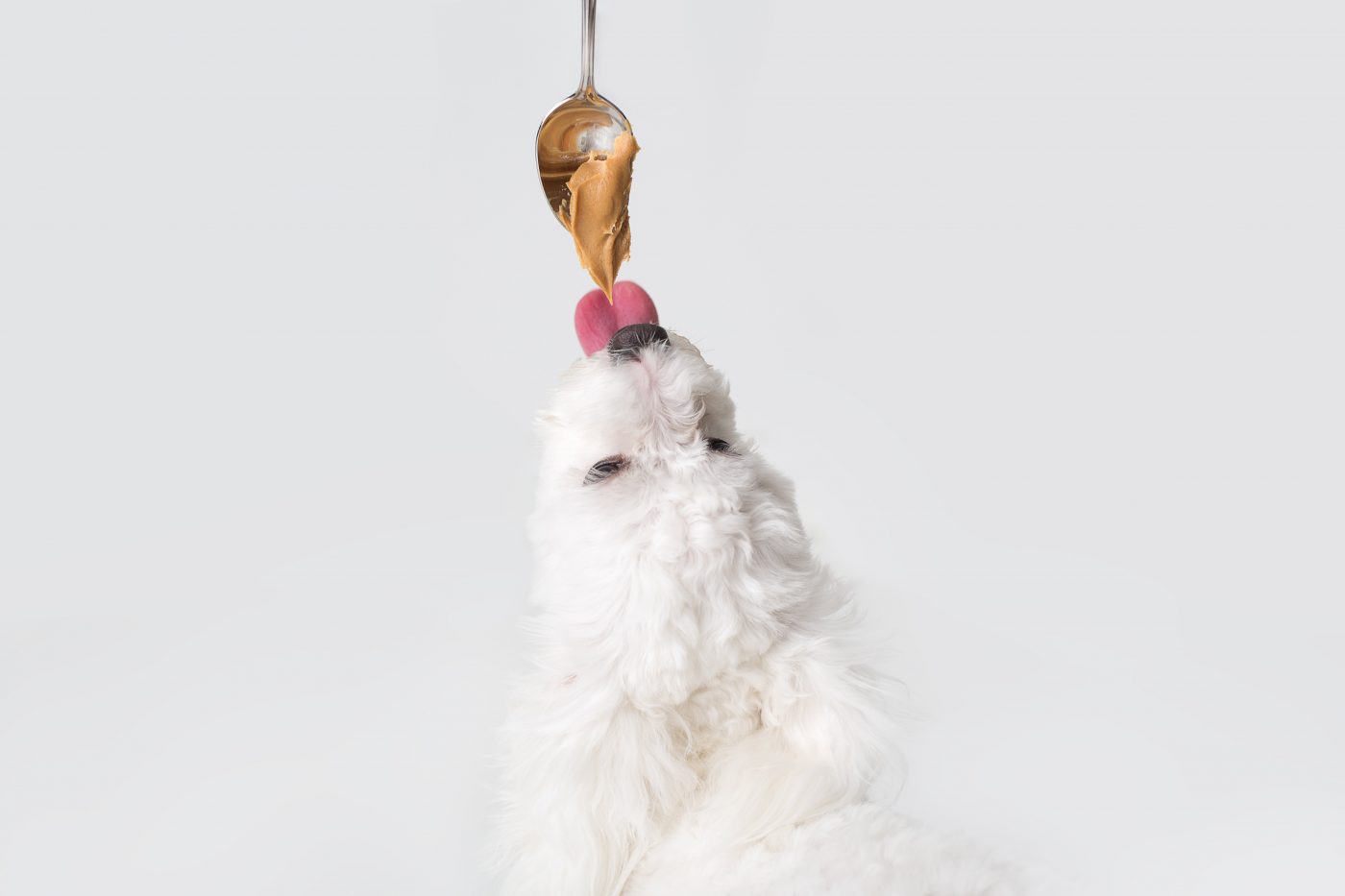
With its claims of weight loss and improved health, the low-carb craze has everyone from teenagers to grandparents giving it a go. Because “low-carb” usually equates to “low-sugar,” sugar substitutes such as aspartame, erythritol, stevia, and xylitol seem to be in practically everything these days.
Meeting your health goals while still keeping your pet safe requires education, especially when it comes to xylitol toxicity. Xylitol and pets do not mix, and we want to make sure our readers are aware of the dangers associated with this particular substance.
What is Xylitol?
Xylitol is a sugar substitute that’s often found in sugar-free baked goods, candy, gum, mints, peanut butter, chewable vitamins, oral care products, and pharmaceuticals (to name a few). This naturally occurring substance is similar in taste and appearance to sugar and is usually extracted from corn fiber or hardwood trees, such as the birch tree. The popularity of xylitol has increased dramatically over the past few years due to its low glycemic index and cavity-fighting properties.
Xylitol and Pets
Although xylitol is safe for human consumption, it’s extremely toxic to dogs. Even in small amounts, xylitol can cause a dangerous drop in blood sugar (known as hypoglycemia), seizures, liver failure, and even death. Xylitol has no known adverse effects in cats (although we do not recommend feeding your cat anything with xylitol).
Clinical Signs
If your dog has come into contact with xylitol, it should be considered a medical emergency. Symptoms of xylitol poisoning in dogs typically appear within 10-15 minutes or several hours of consumption. Signs can include any of the following:
- Vomiting
- Weakness
- Loss of coordination, difficulty walking/standing
- Depression or lethargy
- Collapse
- Tremors
- Seizures
If you suspect your pet is suffering from xylitol toxicity, please bring them in to see us or visit the nearest emergency veterinary hospital right away. Time is of the essence when it comes to xylitol poisoning. Fortunately, with prompt treatment, many pets make a full recovery.
Prevention is Key
If you or anyone in your family regularly uses products containing xylitol, make sure they’re stored out of your pet’s reach. Always read labels before sharing any people-food with your pet. When brushing your pet’s teeth (which we recommend), be sure to use a pet-specific toothpaste (never use human-grade products).
Keep a close eye on backpacks, lunch boxes, purses, and coat pockets, as these can be of particular interest to dogs and are likely to contain gum, candy, leftover food, or other items that could be harmful. Initiate a strict family policy that all personal items be hung up immediately or otherwise stored out of your pet’s reach upon entering the home. Double check each day to make sure this has been done.
If you have additional questions regarding xylitol and pets, please don’t hesitate to contact the team at West Park Animal Hospital.
The post Xylitol and Pets: Reminders of a Not-so-Sweet Reality appeared first on West Park Animal Hospital Blog.

